The date February 23 will be remembered as the showdown between Venezuelan interim President Juan Guaidó against de facto President Nicolás Maduro, as the latter seeks to remain in power at all costs.
President Guaidó has announced that on that day, humanitarian aid will enter the country and be distributed among citizens in need; meanwhile, Maduro has labeled this aid as a “show” and “breadcrumbs,” since accepting it would hurt his grip on power. Controlling access to food and other basic necessities has become the Maduro regime’s ultimate tactic to retain control of the South American nation.
Guaidó’s Pledge
The political crisis in Venezuela is overshadowed by its socioeconomic crisis. Between three and four million Venezuelans have fled the country already, while those who remain have had to adapt to a shortage of food, medicine, and other basic necessities—hospitals are also suffering a lack of staff, equipment, and medical supplies. Interim President Guaidó has sought to remedy this turning to the international community for assistance. In a January 24 letter to US Secretary of State Mike Pompeo, the interim head of state asked the US to send “food, medicine, and medical supplies, and perhaps…a hospital ship [presumably the USS Comfort]” to Venezuela.
At the time of this writing, various US Air Force C-17 aircraft have transported humanitarian aid from Homestead Air Reserve Base, Florida, to Cúcuta, Colombia. According to a statement by USAID, the first wave of deliveries has food kits that include oil, flour, lentils, and rice; hygiene kits; nutritional supplements, known as Ready-to–Use Supplementary Food; energy cookies and medicine.
Cúcuta is right next to the border with Venezuela, where Maduro infamously ordered to block with trucks and containers an international bridge (Puente Internacional Tienditas) that crosses the Tachira River to prevent any type of crossing. It appears that on February 23, trucks carrying the humanitarian aid will attempt to cross this bridge.
How Far Will Maduro Go to Stay in Power
The Maduro regime has realized that they need to do something to help the Venezuelan people, given how the government has driven the economy to the ground. Hence, the Venezuelan government has reportedly acquired medicine from its few remaining allies, like Cuba, China, and Russia. However, for the population to acquire these goods the price to pay, apart from money, is loyalty. Namely, the Venezuelan government has issued a special ID, known as “homeland card” (Carnet de la Patria in Spanish). The card is used as a type of population control, as it is required to vote and access “food, hygiene items, and subsidized school scholarships,” as well as gasoline.
Even more, the Maduro regime is also resorting to scare tactics so that the population looks at Guaidó and his international supporters with fear, if not hate. Recently, (de facto) Venezuelan Vice President Delcy Rodríguez declared via state TV that the food the US is trying to deliver to Venezuelans is contaminated, poisoned, and even cancerous. She went on to declare that the food could be regarded as “biological weapons.” Ridiculous statements like these demonstrate that the Maduro regime has thrown logic out the window and is focused on staying in power via fear and control.
What could happen on February 23?
As of this writing, Maduro has declared that he will not allow the border to be opened so that trucks with humanitarian aid can enter on February 23. After all, accepting this humanitarian aid would undermine his regime’s control of the country, as the assistance is coming from Guaidó and the US. Never mind that this assistance would help Venezuelans in dire need. Thus, it comes as no surprise that during a recent visit to Washington, DC, President Iván Duque Márquez of Colombia declared that “blockading international humanitarian aid, for me, is a crime against humanity.”
The key issue will be the behavior of two actors, the Venezuelan armed forces, and the general population. While many senior military leaders and troops continue to follow Maduro’s orders, there have been a plethora of defections as well as arrests of many military officers, which the regime accuses of being coup plotters. The great unknown is whether the border guards will defy Maduro, remove the blockade, and allow the trucks with humanitarian aid to enter, or follow Maduro’s ludicrous order.
As for the population, their anger against the Maduro regime is as palpable as ever. For example, on February 17 Pableysa Ostos, a journalist for Venezuelan daily El Nacional, uploaded a short video of a Venezuelan citizen arguing with a self-described “Chavista” who was in charge of delivering gas cylinders to a neighborhood. The individual proclaims, “Maduro is over, the hunger is over.”
Final Thoughts
In January, Nicolás Maduro lost the legal right to be called President of Venezuela, as his presidential term came to an end. The actions he is carrying out nowadays—the repression, his clinging to power, the socioeconomic mess that he prolongs by staying in the Palacio de Miraflores, and the food and health crisis that continues to affect the Venezuelan population—makes Nicolas Maduro morally unfit to be the president of Venezuela.
Wilder Alejandro Sanchez is an analyst who focuses on geopolitical, military, and cybersecurity issues.
The views expressed in this article are those of the author alone and do not necessarily reflect those of any institutions with which the author is associated.
Photo Credit: A C-17 Globemaster III delivering humanitarian aid from Homestead Air Reserve Base, FL, to Cucuta, Colombia, on February 16, 2019. This mission was planned at the request of the US Secretary of State, in close coordination with USAID and with the approval of the government of Colombia. The role of the US military during this peaceful mission is to transport urgently needed aid to Colombia for eventual distribution by relief organizations on the ground for Venezuelans impacted by the rapidly deteriorating crisis in their country. This humanitarian mission underscores the United States’ firm commitment and readiness to respond to the man-made political, economic, and humanitarian crisis in Venezuela. US Air Force Photo by Tech. Sgt. Gregory Brook.
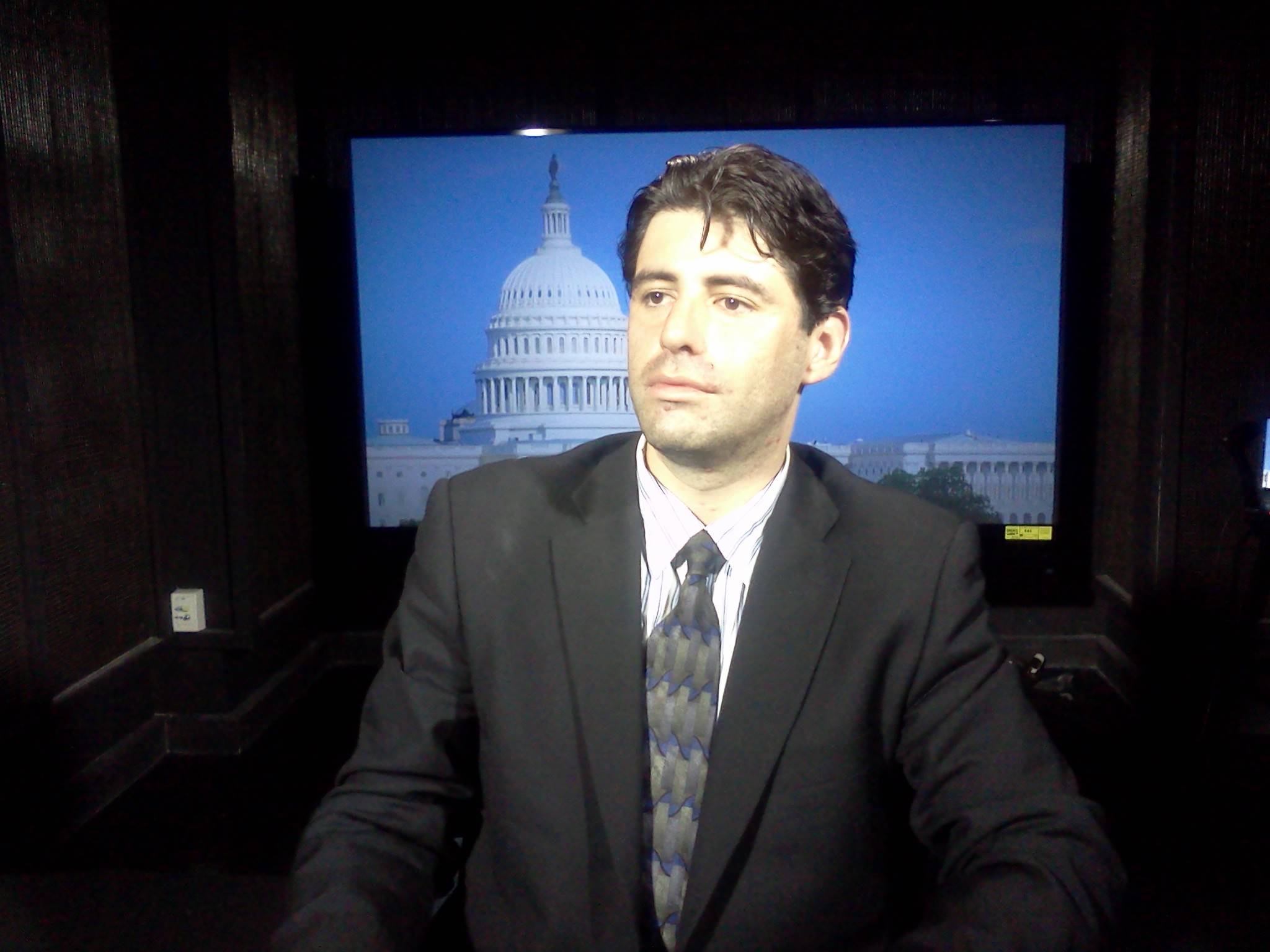
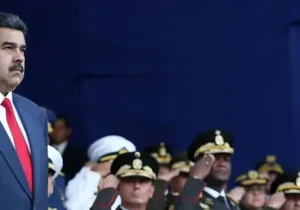
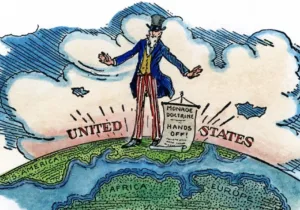
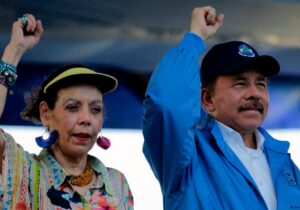
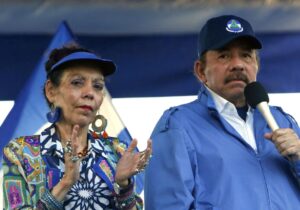
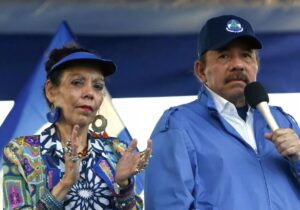

 Sponsor a student for Christianity & National Security 2024
Sponsor a student for Christianity & National Security 2024